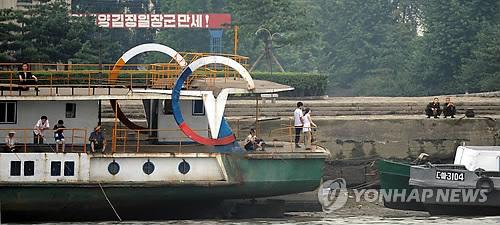- California Assembly OKs highest minimum wage in nation
- S. Korea unveils first graphic cigarette warnings
- US joins with South Korea, Japan in bid to deter North Korea
- LPGA golfer Chun In-gee finally back in action
- S. Korea won’t be top seed in final World Cup qualification round
- US men’s soccer misses 2nd straight Olympics
- US back on track in qualifying with 4-0 win over Guatemala
- High-intensity workout injuries spawn cottage industry
- CDC expands range of Zika mosquitoes into parts of Northeast
- Who knew? ‘The Walking Dead’ is helping families connect
N. Korea looks to attract more tourists to Sinuiju
SEOUL (Yonhap) — North Korea is believed to be seeking to attract more Chinese tourists to its special economic zone in the northwestern border city of Sinuiju, a report by U.S. experts showed Thursday.
Satellite imagery showed a new complex set up in Sinuiju on reclaimed land under a bridge that spans the Amnok River and links the city to the neighboring Chinese city of Dandong. Andray Abrahamian and Curtis Melvin, experts on the North’s economy, included this information in a report carried by 38 North, a website specializing in North Korea issues.
The report cited media reports suggesting that accommodations, restaurants and shopping facilities are also being built to facilitate tourism for short-term visitors.
Sinuiju was designated a special administrative zone in 2002, but it quickly fizzled out, as Chinese-Dutch businessman Yang Bin was jailed for tax evasion and other charges in China after being named the first governor of the zone.
The area was renamed Sinuiju International Economic Zone in 2013 amid North Korean leader Kim Jong-un’s push for economic development.
“Assuming the strained relations between Pyongyang and Beijing gradually mend, Sinuiju may be able to attract other small or medium-sized investments, if North Korean policy makers can build an economic environment that is seen as safe and stable for investors,” it said.
But they also remained cautious about whether the North could achieve such a goal.
The report said that Chinese investors may prefer “importing North Korean labor or making small consignment orders from North Korean firms, rather than exporting their capital to North Korea.”
















